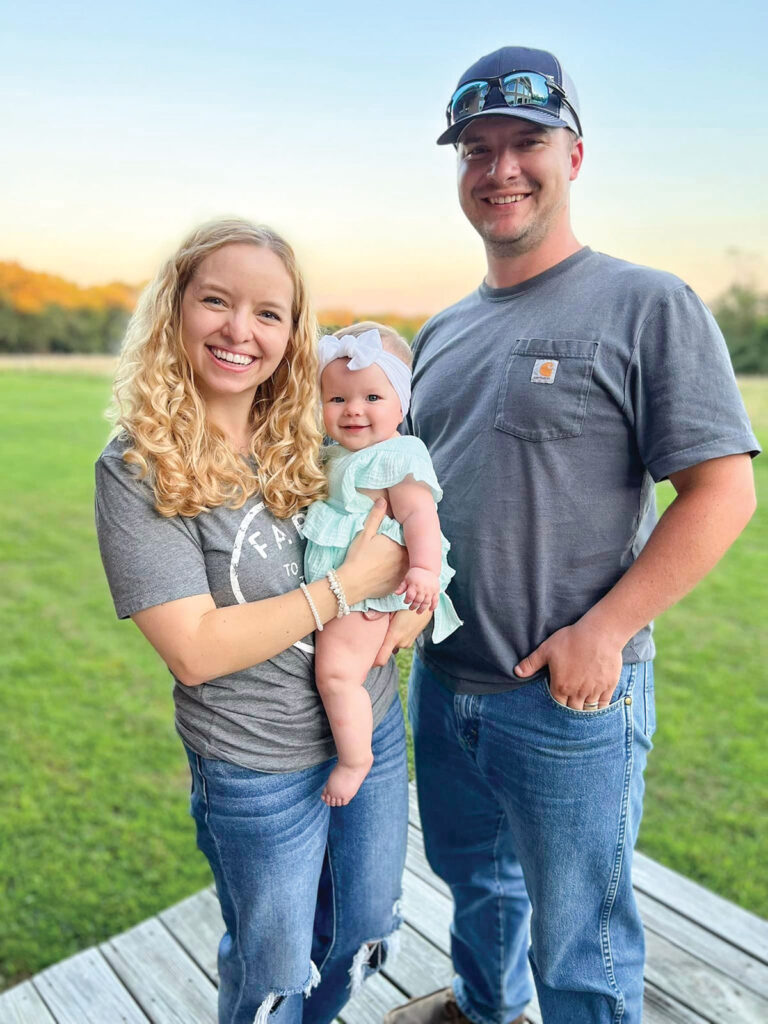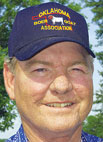
Quinten and Janeé Parker began carving out their farm four years ago
FAYETTEVILLE, ARK. – Ranchers have always been pioneers in finding new ways to improve production agriculture.
Some challenges young farmers and ranchers face today are unique. Young producers are committed to agriculture in traditional and nontraditional ways. Quinten and Janeé Parker grew up in the cattle industry, but started their own operation from scratch.
Janeé and Quinten own a small stocker operation in Centerton, Ark. They buy and sell calves from the sale barn and feed them out at their farm. They usually have about 60 head at the farm.
When the Parker family isn’t working their jobs off the farm, they drive 30 minutes to take care of their cattle at their property in Maysville, Ark.
They bought their farm a little over four years ago, but it was not operational.
“We’ve had to do a lot of improvements with the fences, pens, gates and working facilities,” Janeé said. “We’ve built it piece by piece over time.”
The land was not productive as it had weeds and the fences were in bad shape. There were no working facilities to help treat cattle.
“We have gotten a lot of knowledge and guidance from both of our parents who have gone through that and taught us how to do those things,” Janeé said. “Agriculture was destined to be in my blood.”
Janeé’s roots run deep in the cattle industry as she grew up as a third-generation rancher. Additionally, she gained valuable experience by showing through 4-H.
“We love cattle as the animal itself but also being a part of producing and being a part of the food industry by providing quality beef for our family as well as raising cattle so that the end consumer can also get quality beef as well,” Parker said.
They enjoy playing a small role in the supply chain for food, even though they don’t sell directly to the market.
“WE JUST TRY TO BE A POSITIVE INFLUENCE IN THE COMMUNITY SO THAT PEOPLE TRUST OUR FOOD SYSTEM IS SAFE AND FARMERS CARE AND THAT WE TAKE GOOD CARE OF OUR CATTLE.”
— JANEE´ PARKER
“We support agriculture advocacy through Farm Bureau and helping with 4-H programs,” Janeé said. “All are important efforts to help the next generation in learning about cattle and advocacy about agriculture, especially in Northwest Arkansas.”
Janeé explained keeping people connected to where their food comes from and showing that farmers care about their animals is important to the agricultural industry.
“We just try to be a positive influence in the community so that people trust our food system is safe and farmers care and that we take good care of our cattle,” she said.
Producers face many challenges day in and day out. Parker explained as a producer she has to be OK with things not looking the greatest.
“Our biggest challenges are time, money and weather,” Janeé, who is also a food safety specialist, said with a laugh.
One of the daily challenges they face is being unable to be on the farm. They make improvements to the land to make it easier on themselves.
“Each year we try something new and improve pastures, whether that’s planting crabgrass that will come back every year and then planting rye and just watching the stewardship of the land,” Janeé said.
Janeé enjoys watching the land come together piece by piece as they want to live on their farm one day.
“It’s pretty cool to watch from where it started to where it is today,” Janeé said.
“Our long-term goal is that we are not trying to do everything overnight and be the best immediately, but we are making small improvements over time so that hopefully in the four years that we’ve had it you can see major improvements,” Janeé said. “I hope it will look even better in the next four years and be more productive and produce good quality beef.”
The Parker family is a new breed of producers who can’t be on the farm every day but still make it their lifestyle and advocate every chance they get.







